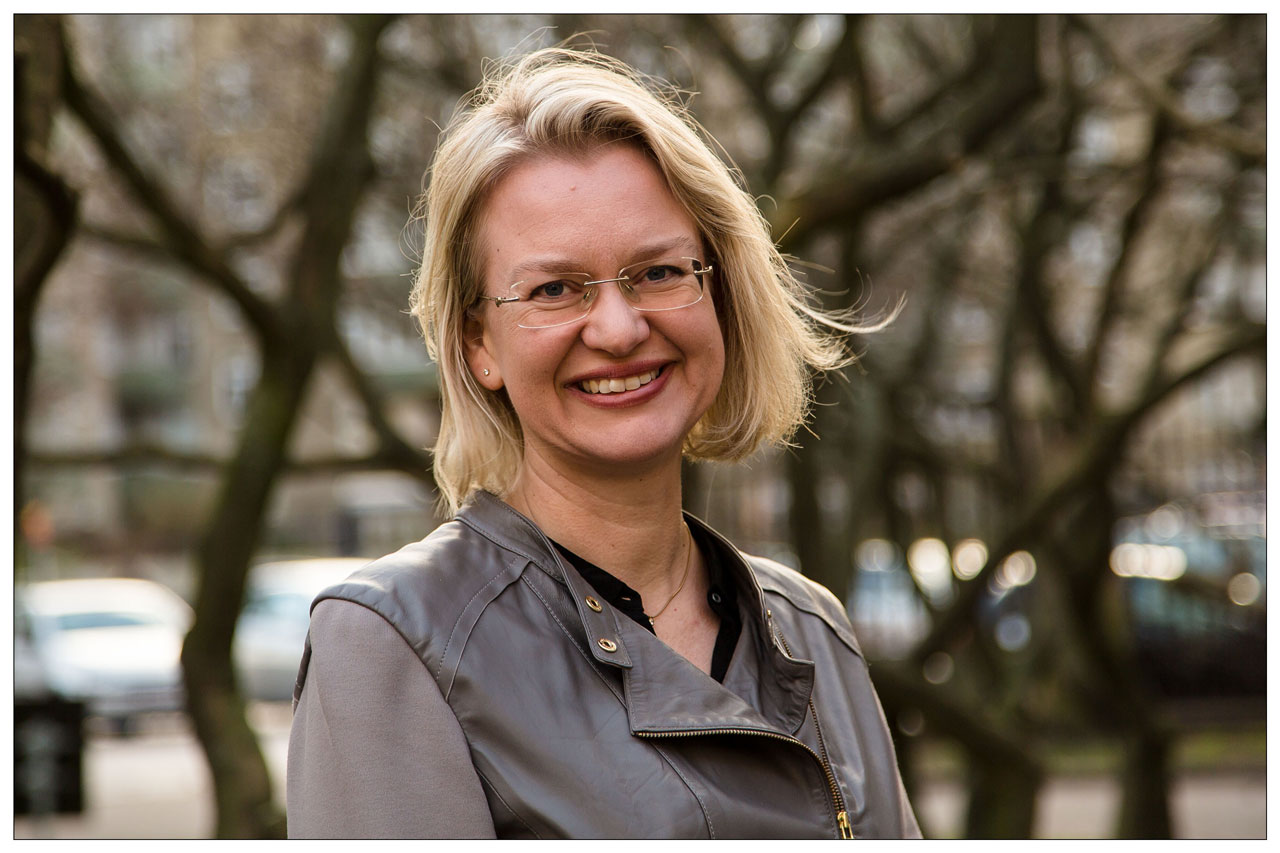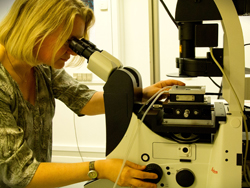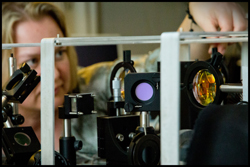Lene Oddershede appointed professor
Lene Oddershede, head of the research group Optical Tweezers at the Niels Bohr Institute, has been appointed professor of experimental biophysics. In the last year, Lene Oddershede has received a grant from the Danish National Research Foundation for a new research centre, StemPhys, a large grant from the Novo Nordisk Foundation for a large, interdisciplinary cancer therapy project and a research grant from FNU.

Lene Oddershede received her Masters in Physics and Mathematics from the University of Southern Denmark in 1995 and her PhD in Experimental Physics of Complex Systems in ’98. During her PhD studies she worked for a year at the University of Chicago, which greatly impacted her future work.
“In Chicago, I heard several lectures on biological physics and optical manipulation. It was really inspiring. Afterwards, I travelled around and visited several universities to see how they conducted research and I saw the equipment they built for the experiments – an optical tweezers that could hold living cells and examine them using concentrated laser light,” explains Lene Oddershede.
Builds complex equipment herself
After returning home and finishing her PhD, she was appointed assistant professor at the Niels Bohr Institute. Along with a colleague, Kirstine Bang-Sørensen, she received a Freja Grant from the Danish Research Council and Lene Oddershede began to build her own equipment from scratch.
“I went into an empty room down in the basement and started by washing the floor. I wanted to build my own optical tweezers so I ordered equipment parts, components, screws and all kinds of elements and began to construct the equipment. It took a long time to build the complex equipment and it was the first optical tweezers in Scandinavia,” explains Lene Oddershede.
The optical tweezers are used to manipulate and control living tissue without damaging it and to study the mechanical properties of cells and molecules in order to understand the fundamental properties of biological systems.
Performing experiments with the optical tweezers was a very popular activity among the students and the research quickly moved forward. Lene Oddershede received grants and got good research results. The research group grew and in 2003 she was appointed associate professor.
Lene Oddershede is married to Ulrich Quaade, who is also a physicist and head of a research department in a private company. Together they have three sons who are 8, 14 and 17. The whole family is interested in science and can have really nerdy discussions.

The optical tweezers are used to manipulate and control living tissue without damaging it and for studying the mechanical properties of cells and molecules in order to understand the fundamental properties of biological systems.
Research field advancing by leaps and bounds
Her work cuts across physics, biology and medicine and this new interdisciplinary research field that is carried out in collaboration with biologists doctors is moving forward by leaps and bounds.
“The last year has been quite overwhelming in terms of large new grants. We have just received a large grant of 14.5 million kroner from the Novo Nordisk Foundation for an interdisciplinary cancer therapy project where we, along with doctors and chemists, will research how to develop a gentle treatment of cancer tumours locally using tiny nanoparticles and laser light. From FNU, the Danish Council for Independent Research, Natural Sciences under the Ministry for Higher Education and Science we have received 6 million kroner to research the interaction of cancer cells with their surroundings in order to find out how they invade healthy tissue. And then we received a grant of 60 million kroner from the Danish National Research Foundation for a new Center of Excellence, StemPhys, where we, along with stem cell biologists, will research the potential of stem cells for creating new organs,” says Lene Oddershede, who is incredibly pleased with the great progress as she believes that it is absolutely necessary to invest heavily in research and education in order to keep us in the forefront as one of the leading innovative nations in the world.

Lene Broeng Oddershede, Associate professor and leader of the Center of Excellence, StemPhys, and leader of the research group Optical Tweezer at the Niels Bohr Institute, University of Copenhagen, Tel. 2494-2534, Email: oddershede@nbi.dk
See also:
Nanoparticles: Fight against cancer

